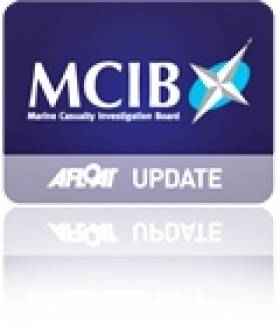Displaying items by tag: findings
Brexit Workshop Reveals Findings and Recommendations for Marine Connectivity
A workshop event in preparation for Brexit was hosted by the Department of Transport Tourism and Sport (DTTAS) with the support of the Irish Maritime Development Office (IMDO).
The aim of the workshop was to allow shipping and port companies, importers and exporters to discuss maritime connectivity, trade patterns and capacity demands in a no-deal Brexit scenario.
The workshop took place in Dublin on 4th September in order to create further opportunities for a dialogue between importers, exporters, ports, and shipping and logistics companies.
According to the IMDO, the workshop was a hugely successful event attended by key people from a number of different industries including the ports, shipping companies, the food and drink industry, the haulage industry, the transport and distribution sectors, and relevant Government Departments.
The dialogue on the day was very constructive and everyone who attended was given the opportunity to clearly express their views. The main issue highlighted on the day is the pressing need for a dialogue to begin between the importers and exports and the shipping companies to establish the demand post-Brexit.
Following the workshop, click here for findings and recommendations concluded from DTTAS and the IMDO.
Families Disagree with MCIB Report on F/V Jennifer
The Irish Examiner reports that the families of two fisherman who drowned off Malin Head last November disagree with the findings of the official investigation into the tragedy.
Eddie Doherty, 65, and his nephew Robert McLaughlin, 41, died after their small fishing boat F/V Jennifer capsized and sank off Glengad on 1 November last year.
The official report released last week by the Marine Casualty Investigation Board (MCIB) found that a combination of high winds in the area and unstable weight on the boat due to the crab pots it was carrying most likely caused the vessel to list to an angle from which it could not be recovered.
But Eddie Doherty's widow said she disagreed with this conclusion.
"With Eddie’s experience and his regard for safety the load would have been spread evenly over the deck of the boat and therefore this would not have had an adverse affect on the stability of the boat," said Marian Doherty.
The full MCIB report is available to read in full HERE.




























































